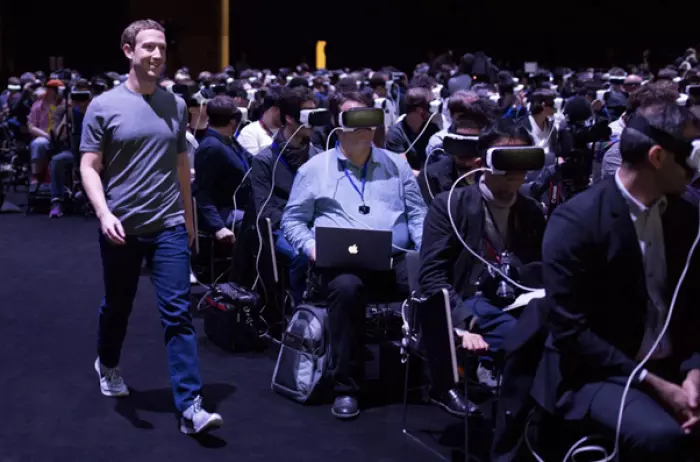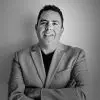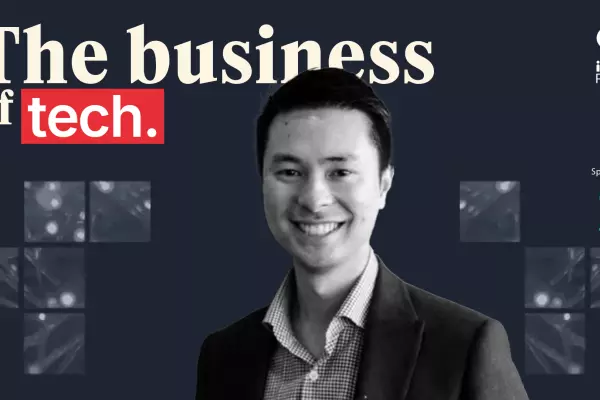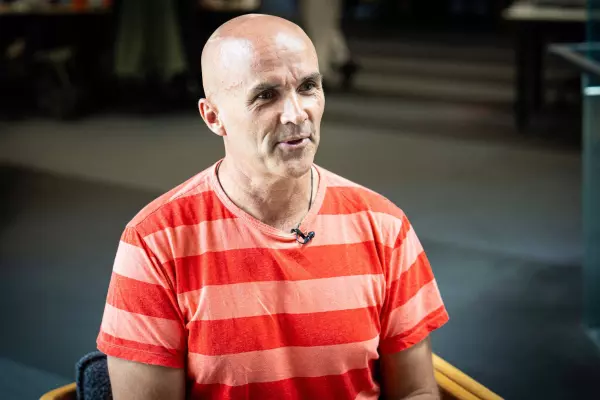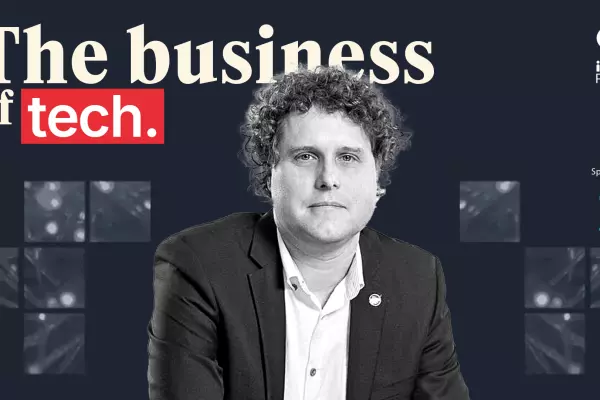The photo of Mark Zuckerberg was taken years ago, long before he changed the name of Facebook to Meta and set out to build the metaverse.
It shows the billionaire Silicon Valley entrepreneur at the Mobile World Congress in Barcelona in 2016, striding past an audience of conference attendees, all wearing virtual-reality headsets. Zuckerberg, unadorned with technology himself, has a grin on his face.
He is in on the joke and the joke is on us – the billions of Facebook, Instagram and WhatsApp users who sit on his social networks for hours each week helping to fine-tune his money-making algorithms. We may soon be doing so in Zuckerberg’s new 3D virtual world as well.
That photo was rich fodder for internet memes at the time because it seemed to sum up the future so aptly – Zuckerberg as a sort of pied piper figure, leading us in a trance-like state ever further into his digital realm.
It may come as a surprise to you that Zuckerberg and many of his contemporaries in the rarefied atmosphere of Silicon Valley are not huge users of their own products. Drug dealers say you should never get high on your own supply. The digerati, peddlers of the most pervasive global addiction of all, seem to have taken that advice to heart.
“You've got an elite who meditate, do yoga, send their kids to Montessori schools [but] don't let their kids even have iPads,” says Johann Hari, the English journalist and author of Stolen Focus: Why You Can’t Pay Attention – and How to Think Deeply Again.
“All they want is you to pick up your phone more and scroll more often.”
Driven to distraction
It’s a new book but it will feel instantly familiar to anyone who has found themselves struggling to stay focused in a world interrupted by instant messages and personalised social media adverts, all mediated by screens of every shape and size.
Hari counts himself among the afflicted. He has gone to the extreme measure of installing a “kSafe” lockbox at home, into which he deposits his digital devices so he can’t access them for a pre-set period of time. A timer opens the door to signal the end of his self-imposed internet hiatus, allowing him to log on once again.
In Stolen Focus, Hari outlines 12 factors that are contributing to the general state of distraction and being frazzled many adults and children alike seem to permanently live in. He points to deteriorating diets and rising pollution as being part of the problem, the recent rise of attention deficit hyperactivity disorder (ADHD) in kids, high-stress jobs, and the erosion of our ability to read for sustained periods.
None of these are particularly new or controversial theories, though in many cases the evidence base underpinning them is sparse. One small study Hari cites found that college students could focus on one task for only 65 seconds at a time. Another observed office workers and found they could focus for only three minutes on average.
There are complex reasons we appear to be increasingly less able to focus. But Hari is resolute on one thing. We didn’t just become easily distracted as the world became more complex. The focus that many of us had has been stolen from us.
The thieves are the creators of technology designed to track and manipulate us, which has given rise to what the US author and retired Harvard Business School professor Shoshana Zuboff has dubbed “surveillance capitalism”.
From the ads presented alongside Google’s search-engine results, to the organisation of posts in the Facebook newsfeed, to the videos you are served up on TikTok, an attention economy worth trillions of dollars has emerged to keep us engaged in the digital world.
Hari leans heavily in Stolen Focus on the work of the dissidents of Silicon Valley who helped design these tools before realising, in horror, the control they were exerting over billions of people. There’s Azra Raskin, the inventor of the infinite scroll used on websites and apps that replaced the earlier page-based approach to web design.
At age 32, Raskin sat down and calculated that infinite scroll had led to people spending at least 50 per cent more time on social media sites like Twitter. He did the sums on the impact of billions of people spending that extra time scrolling: a combined total of 200,000 total human lifetimes – every moment from birth to death – every single day. He turned his back on the attention economy as a result.
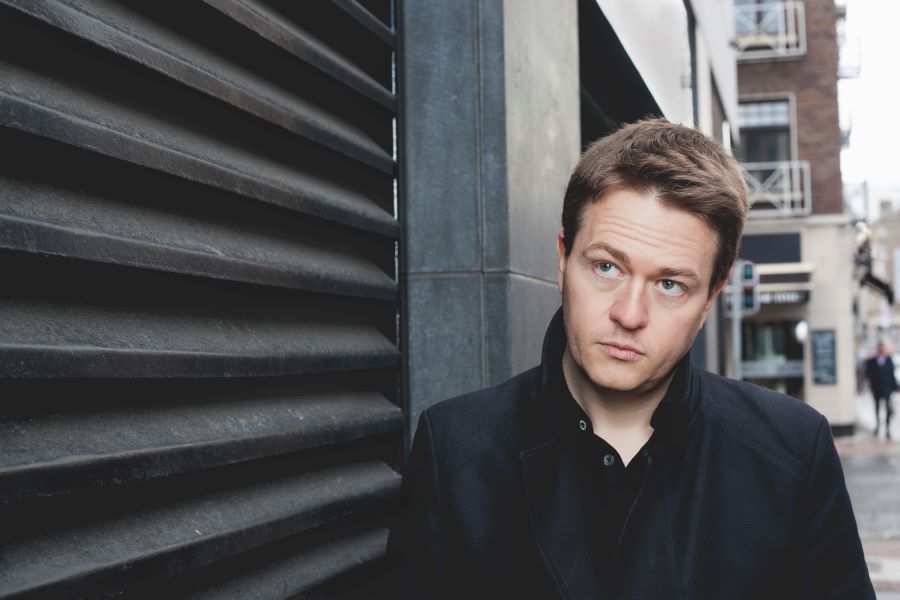 Author Johann Hari. Photo: Kathrin Baumbach.
Author Johann Hari. Photo: Kathrin Baumbach.
The attention rebellion
Tristan Harris went to work at Google in 2011 after his start-up was bought by the internet giant. Harris was assigned to Gmail, Google’s popular email application, and tasked with figuring out ways to make people spend more time using it.
The star of the Netflix documentary The Social Dilemma, a viral hit when it was released in 2019, Harris realised he and his colleagues working at the Googleplex were “creating an arms race that causes companies to find more reasons to steal people’s time”. He quit Google and founded the Time Well Spent movement, advocating for Big Tech to stop interrupting their users with alert notifications, vibrations and tricks to keep them scrolling.
That movement has had some impact. Google and Apple now build tools into their phone operating systems allowing you to measure and control your screen usage. More parents are limiting their kids’ screen time and using apps to keep tabs on their web surfing.
But the attention economy has ballooned in size all the same and the new metaverse Zuckerberg is planning could make the problem even worse.
“If the current business model dominates it, it will look like the current invasive technologies that are designed to fragment and hack our attention, except it'll be even more powerful and more invasive,” Hari says.
The issue, he argues, needs a circuit breaker, one that will force a change in the business model underpinning the attention economy. When we’ve seen evidence of harm before, we have acted. We phased out chlorofluorocarbons (CFCs) in the 1990s when we realised how they were ruining the ozone layer. We still have fridges and cans of hairspray, just with less-harmful gases.
In the late 1960s, it became obvious that lead-based house paints used here and around the world were a health hazard, causing learning and behavioural problems in children, reproductive problems, and even nerve and brain damage. The use of white lead in paint was finally banned in New Zealand in 1979.
“There was a movement of ordinary mothers – it was overwhelmingly mothers – who just said, ‘Why are we tolerating this?’ Why are we allowing this for-profit industry to destroy our kids' attention?’” says Hari.
Numerous scandals have beset Facebook, most recently last year’s whistleblower scandal, which saw the leak of thousands of documents revealing the company’s executives had ignored their own researchers’ evidence of the harm their platforms cause users. There has been no mass movement to delete Facebook. So, what will make a difference?
A small, vocal minority targeting the politicians who represent them, argues Hari. “Politicians will be as good as the pressure we put on them,” he says. Or to channel Guardian columnist Rebecca Solnit, politicians are the weathervanes; our job is to be the wind.
There have been some small wins. France’s “right to disconnect”, introduced in 2016, gave workers the legal right to avoid work emails outside working hours. Several countries, Ireland and Portugal included, have followed suit. Belgium this month issued right-to-disconnect rules for 65,000 civil servants and plans to extend them to the private sector. Whether it is a policy suitable for knowledge workers increasingly working from home with flexible hours is debatable.
Australia’s government last year introduced legislation forcing Facebook and Google to share some of their advertising revenue with large media companies. It briefly saw Facebook drop Australian news outlets from its platform, before returning to the negotiating table to hammer out deals with them.
Heartland of the attention hackers
There is some cross-party consensus in the US, the true home of the attention economy, over the need to address the social ills created by Big Tech’s business practices. American Democratic lawmakers last month introduced a new bill, the Banning Surveillance Advertising Act. It would effectively ban digital advertising targeting consumers, with a couple of exceptions – contextual ads and location-based targeting.
But gaining enough support in Congress for sweeping legislative change remains challenging and will become more so if the Democrats have a poor showing in the midterm elections.
Hari’s other suggested fix is even more problematic than new laws restricting targeted advertising. He suggests a BBC-type model, a publicly owned, independently run social network that forgoes the attention-hacking techniques employed by the likes of Facebook and Twitter.
“Before we had sewers, we had faeces in the streets and all sorts of terrible problems. We got cholera,” says Hari. “We all pay to build the sewers together and we own the sewers together. We also want to own the information pipes together, because we're getting the informational equivalent of cholera.”
It’s a problematic analogy for us given our current water infrastructure woes. If Hari’s ideas to win back our focus aren’t provocative or controversial, the writer himself certainly is. In 2011, his promising career as a newspaper columnist in London crashed off the rails when he was suspended by the Independent over claims he’d plagiarised quotes.
He was also revealed to have been a “sock puppet”, posting malicious entries on the Wikipedia pages of journalists he’d had run-ins with. He soon after resigned from the Independent and had to return the prestigious Orwell Prize for journalism he’d won back in 2003.
Hari seems to have spent the past decade working to regain his credibility. He records all of the interviews for his books and posts them online as part of his efforts to rebuild trust in his work.
“I’m ashamed of what I did. I did some things that were really nasty and cruel,” he told the Guardian in 2015. “Well, I f***ed up and it’s perfectly right for people to be sceptical. I know I’ve got work to do in regaining trust.”
Digital demons
He’s made a decent fist of doing just that in the past decade, becoming a bestselling author with Chasing the Scream and Lost Connections, non-fiction books that respectively dealt with drug addiction and depression, both topics he has intimate knowledge of. His TED Talk, Everything you know about addiction is wrong, has amassed more than 20 million views.
Stolen Focus continues the theme as an effort to analyse and exorcise his personal demons by seeking out their root causes. He estimates his own attention has improved by about 20% as a result of his efforts to limit his social-media use, cut out interruptions, sleep more, and cut down on sugar in his diet. But he admits that making the lifestyle changes he advocates in Stolen Focus won’t come as easily to others, overworked, digitally addicted and stressed out after two years of living with the covid pandemic.
“I'm a writer, my books have sold well. I've got a big margin to change my life,” he says. “I can sleep more because I don't have a boss who's texting me at 11 o'clock at night expecting me to answer.”
But we are not medieval peasants “begging at the court of King Zuckerberg for a few little crumbs of attention from his table”, Hari says. What is a social network, even one as vast as Facebook, but a collection of billions of individuals. Without us, the emperor has no clothes.
“We are the free citizens of democracies, and we own our own minds,” says Hari. “We can take them back if we want to, but we're going to have to fight for them.”
Johann Hari’s top five things you can do to improve your attention
Change your diet – If you eat a lot of sugar, that causes energy spikes, and then causes energy crashes. When you crash, you experience “brain fog” and can’t pay attention. Choose food that reduces energy steadily.
Insulate yourself from interruptions – One study found that being interpreted by texts and phone calls is worse for your attention and ability to think clearly than getting stoned. Just checking a text once knocks 20% off your focus. You need to create spaces in your life where you are protected from interruptions.
Sleep an hour more every night – If you sleep six hours a night, within two weeks your attention and reaction times are the same as if you got drunk. The best thing you can do for your attention is sleep an hour more every night.
Find your flow – We all have within us the ability to get into a flow-state, which is when you can effortlessly focus on something for hours. To get into a flow state, you need to find something meaningful to you. You need to cut out all interruptions, and it needs to be something that is a little challenging. If it’s too easy, you won’t flow, and if it’s too hard, you’ll give up.
Let your kids play freely without you – The stress of constantly monitoring your kids reduces your attention, but even more importantly, the science shows children develop an ability to pay attention primarily through playing freely. Let your kids play outside without you. It’s better for your attention, and better for theirs.
Stolen Focus: Why You Can’t Pay Attention – and How to Think Deeply Again, Bloomsbury, $34.99


